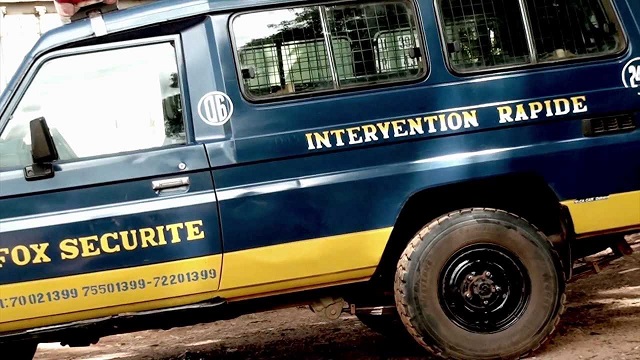
Bangui, Central African Republic | AFP | “When I decided to come back, my friends took me for a fool,” recounts Clement Ndotizo, who spent a decade in France before returning to settle in his native Central African Republic, one of the world’s least-developed and most dangerous countries.
But a “fool”, he is not. Like other CAR “repatriates”, Ndotizo used skills and experience acquired abroad to carve out success in the country, even as it spiralled further into conflict and poverty.
In his huge villa with swimming pool and sweeping views over the river Oubangui, Ndotizo tells his story with evident pride.
After founding Fox Private Security in France, Ndotizo returned to the CAR in 1993 to create the same firm in the capital Bangui. It quickly became one of the most important businesses in the war-torn country, with more than 1,500 agents.
“In France at the time we were a small company, there was competition,” he told AFP. “I saw that it could not go further,” added the businessman, who became a member of parliament in 1996.
On the face of it, CAR is not the most promising of business environments.
The landlocked country is rich in natural resources — including diamonds, uranium, timber, gold, and oil — but has been brought to its knees by conflict.
CAR plunged into chaos after mainly Muslim insurgents called the Seleka overthrew President Francois Bozize, a Christian, in 2013, sparking the bloodiest sectarian violence in the country’s history.
Since then thousands have been killed and a quarter of the population of 4.5 million have fled their homes.
While the country has seen a modest economic recovery in recent years as fighting stabilised, it remains among the poorest in the world.
In 2017, about 75 percent of the population lived below the international poverty line ($1.90 per day), according to World Bank projections based on gross domestic product per capita.
– Brain drain –
“You quickly realise that the fact of having worked abroad is an advantage,” said Auguste Ogoula, who moved back to CAR in 2008.
“I came back on holiday. I never intended to return to do business here,” he said.
At that time he lived in Britain where he had, over the years, taken up an array of professions — postman, guard, gardener.
“It was when I arrived that I became aware of the opportunities,” he said.
Since then he has opened a bar and music venue, a bakery and a catering service.
And his latest project seems to be the one that he holds most dear: developing agricultural land inherited from his family some 30 kilometres (20 miles) from Bangui.
The previously-abandoned plot now has a cottage surrounded by tropical flowers, fields of corn and cassava, a pigsty, a hen house, and a huge fish farm pond. “The biggest in the region!” he said.
Ogoula laments the “brain drain” of Africans to Europe.
“Sometimes, the circumstances force people to leave, but I know many people who were talented here and who were lost in the crowd in Europe, where there is more competition than in Africa,” he said.
– ‘No regret’ –
Mylene Leborgne arrived in France aged four and spent her childhood between Bordeaux and Amiens.
Today she travels between the two countries, but she chose Bangui to invest in.
She now runs the Carre Gourmand, one of the biggest restaurants in the city.
“One foot in Bangui, one in France, that gives us the ability to have two mindsets and I think that is just wonderful!” she said.
“This is still my hometown, where I know lots of people and it is not so easy to make a name for yourself outside where we do not know many people,” she said.
She shrugs off the risk of losing her investment in a city that has not been spared the violence that has convulsed the country.
“We were always scared when we moved to CAR, but I have no regrets,” she said.
– ‘War or no war’ –
In 2014, during the peak of the crisis, the United Nations said tens of thousands of people took shelter at a camp at Bangui’s airport in “appalling” conditions.
While the CAR began to get back on its feet in 2016 with the election of President Faustin Archange Touadera, 80 percent of the country remains in the hands of militias.
A new peace accord with 14 armed groups inked on Tuesday marked the latest of multiple attempts to end the bloodshed.
“It is normal that I come back to my country, war or no war,” said French-born singer Faya Dread.
The reggae musician used to live in the southern French city of Montpellier, but decided to move to CAR several months ago to launch a music studio and various artistic projects.
“I am trying to do my bit for my country, musically.”
 The Independent Uganda: You get the Truth we Pay the Price
The Independent Uganda: You get the Truth we Pay the Price



